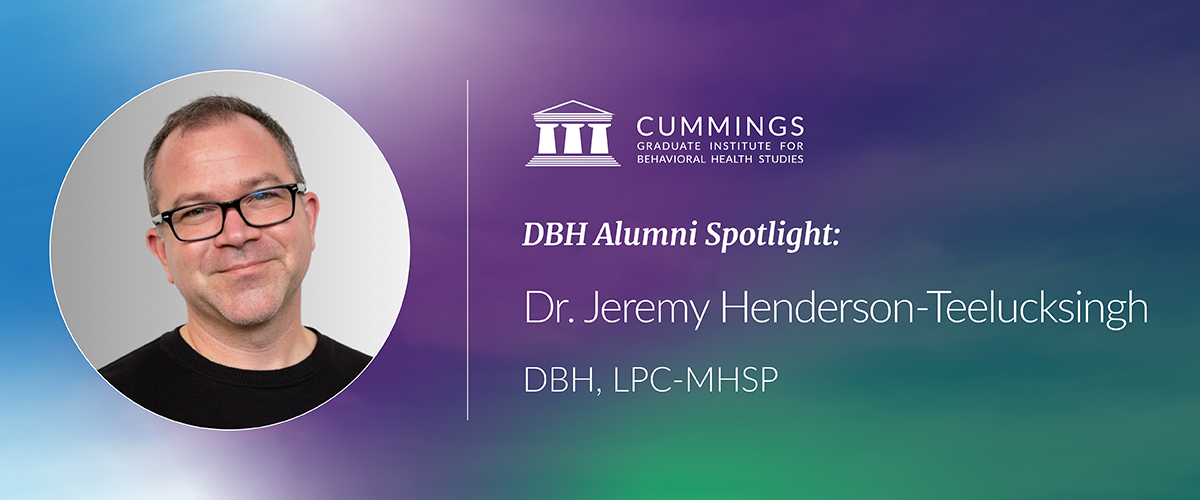 Wellness Everywhere: How Dr. Jeremy Henderson-Teelucksingh is Transforming Communities Through Relationships, Systems, and Information
Wellness Everywhere: How Dr. Jeremy Henderson-Teelucksingh is Transforming Communities Through Relationships, Systems, and Information
Dr. Jeremy Henderson-Teelucksingh, DBH, is a counselor, coach, consultant, and founder of Indigo Path Collective, where counseling, coaching, and consulting come together to support wellness everywhere, at work, at home, and across communities. Author of Managing Success, The Human Relations Matrix, and The Human Relations Matrix 2.0: Equity, Change, and Culture for the Modern Workplace, Dr. Henderson-Teelucksingh integrates clinical expertise with more than two decades of corporate leadership experience to help individuals and organizations align relationships, systems, and information for thriving environments. Dr. Henderson-Teelucksingh’s counseling practice focuses on adults, couples, families, and polyamorous relationships navigating trauma, PTSD, anxiety, OCD, chronic illness, and chronic stress, with care grounded in Acceptance and Commitment Therapy (ACT) and informed by neuroscience, Humanistic, Psychodynamic, Internal Family Systems (IFS), and the Biodyne Model. As a National Certified Counselor (NCC), Certified Clinical Mental Health Counselor (CCMHC), and Board Certified Telemental Health Provider (BC-TMH), Dr. Henderson-Teelucksingh also serves as an advocate for the LGBTGEQIAP+ community. Through the development of Values-Aligned Functioning (Values AF), a coaching framework for principle-driven action, and consulting services that strengthen workplace culture and collaboration, Dr. Henderson-Teelucksingh applies the DBH training to create meaningful, lasting change. In this interview, Dr. Henderson-Teelucksingh shares insights on the impact of the DBH degree, professional passions, and the vision for transforming behavioral health and community wellness.
How has earning your DBH shaped your approach to behavioral health?
As a graduate of the Doctor of Behavioral Health program, I know that three factors As a graduate of the Doctor of Behavioral Health program, I know that three factors consistently shape wellness: relationships, systems, and information. These pillars influence health outcomes in every environment, whether at home, the workplace, or the community.
Before starting the program, I spent over two decades in employee engagement, communications, marketing, and human resources leadership. Across those roles, I repeatedly saw the same pattern: People thrive when they have strong relationships. They succeed when they work within fair systems. They gain confidence when they have access to trustworthy information. When any of these elements are missing, health and performance suffer.
The DBH program strengthened my ability to apply this perspective across my work at Indigo Path Collective. As a counselor, relationships are the foundation. Clients must feel safe and connected. But relationships alone are not enough. Clients also need systems that guide them into healing, such as the Biodyne Model and trauma-informed practices. They also need information about how trauma, stress, and chronic illness affect them, and tools they can use to sustain health outside of sessions.
This same framework applies to consulting. Employees thrive when they have meaningful relationships with managers and colleagues. They are more effective when organizational systems support rather than obstruct their work. They also need accurate information about company goals and expectations. My DBH training helped me bring this perspective into practice, which led to the development of the Human Relations Matrix 2.0, a trauma-informed employee engagement model that helps businesses strengthen cultures and improve outcomes.
The program strengthened my work in counseling, coaching, and consulting. In every setting, my focus is on relationships, systems, and information. This focus allows me to move between individual care, organizational practice, and community wellness while staying grounded in one philosophy: wellness everywhere, at work, at home, and in our communities.
What are your primary interests in behavioral health, and how do they support your career goals?
My primary professional interest in behavioral health is wellness. I have been committed to helping people find and sustain wellness for over 30 years. Wellness is not confined to a counseling session or a medical visit. It is shaped at home, at work, and in our communities. These environments can support health or contribute to illness.
The first factor is relationships. Safe and secure relationships are one of the strongest predictors of health. At home, relationships shape whether people feel valued and connected. At work, relationships influence whether employees can focus on their contributions or whether they spend their energy protecting themselves from harm. In communities, relationships determine whether people feel safe moving through daily life. When relationships are unsafe, stress builds, and illness can follow. When they are strong, people have the stability to focus on living their lives.
The second factor is systems. Systems should support people, but too often they create barriers. In the United States, many physicians now practice inside corporate and hospital-owned systems, while most counselors remain in private practice. This divide makes integrated behavioral health difficult. Clients are left to connect their own care rather than being surrounded by a collaborative team that centers them and their health. Well-designed systems create transparency, coordination, and trust. Poor systems add stress and discourage people from seeking care.
The third factor is information. Information can heal or harm. Accurate and trustworthy information helps people make decisions. Misinformation or dishonesty creates stress and erodes trust. The need for accuracy remains consistent across all settings. People need to be active participants in their lives and have the opportunity to make decisions that reflect their needs. Without that, they feel powerless, and powerlessness becomes another barrier to wellness.
These interests align directly with my career goals. As a counselor, I work to strengthen relationships and provide the systems and information clients need to heal. As a consultant, I focus on trauma-informed employee engagement and workplace wellness. As a coach, I help managers align their values with their decisions so they can lead in ways that support wellness. At the community level, I build collaborations like the Integrated Care Collective to expand access and strengthen support networks.
My career purpose is wellness everywhere: at home, at work, and across our communities by strengthening relationships, improving systems, and ensuring people have information they can trust.
Can you share a key moment in your DBH journey that shaped your view of integrated care?
Throughout the program, I had several exciting moments to explore healthcare topics directly connected to my practice. One memorable example was in the women’s health course, where I studied transgender-affirming care. That work resulted in a paper later highlighted in a DBH student spotlight on the CGI website. It also strengthened my approach to interprofessional transgender-affirming care and gave me the content necessary to present the topic at the Tennessee Licensed Professional Counselor Association conference.
I will remember most about my DBH journey, the freedom to study what mattered most to me. Time and again, I was encouraged to choose topics that were meaningful to me and relevant to my work at Indigo Path Collective. Having the time and space to explore issues pertinent to my business kept me engaged, advanced my education, improved my practice, strengthened my role as an integrated care provider, and expanded my opportunities to share knowledge with others. Many instructors supported my success, encouraged me to disrupt systems, and were diligent in helping me access information to fortify my clinical and consulting work.
What impact do you hope to make with your DBH in your field and community?
When I think about community, I define it broadly. To me, a community can be a geography or a people, like an employee community, the LGBTGEQIAP+ community, or the DBH community. With my DBH degree, the impact I aim to make is to integrate trauma-informed principles into every community.
The DBH program strengthened my ability to see these patterns clearly and to bring evidence-based, trauma-informed strategies into the places and spaces where communities exist. Trauma-informed principles remind us to prioritize safety, trust, peer support, collaboration, empowerment, voice, choice, and cultural responsiveness. These principles are as relevant at home and work as in any community.
For example, with the Human Relations Matrix 2.0 launch, I demonstrated how trauma-informed principles can be applied to employee engagement. The book provides organizations with practical ways to strengthen employee communications through safe relationships, supportive systems, and trustworthy information to make workplaces healthier and more productive.
What motivates you to keep pushing forward in integrated behavioral healthcare?
There is no reason humans have to suffer in any setting. We can be well when we have the right conditions supporting our collective success. But far too often, people are at odds, systems fail, and information is woefully inaccurate. We can change the world by changing how we view health and illness and what it means to be well. I am motivated by wellness.
Many patients avoid seeing a healthcare provider when it comes to integrated care. This behavior is often not a commitment to illness but rather a way to protect themselves from people, systems, and information that have demonstrated past bias, discrimination, or inaccuracy. We can change that, but it means putting the patient at the center of their healthcare and wrapping providers around them. This patient-centric model requires a focus on holistic health, effective healthcare decision-making, provider collaboration, and incredibly trustworthy communication.
In my view, we can achieve integrated care. To do so, we must take a broader view of what it looks like, use technology as a primary system to deliver it, provide more training to providers, patients, politicians, and employers, and provide readily understood and easy-to-apply information.
What advice would you give to someone considering the DBH program?
Do it! The DBH at CGI takes you on an incredible journey. The program allows you to expand your thinking about health and wellness, the systems we use to deliver care, and the chance to elevate your ability to communicate creatively, accurately, and effectively. But most importantly, the DBH program provides you with the time and space to explore behavioral healthcare topics you are most curious about.
The DBH program is rigorous; this is a doctoral degree you are pursuing. But along the way, you will find some incredible people with whom you will make lifelong friendships, explore mechanisms to disrupt dysfunctional systems, and integrate beneficial information that inspires you to do more and better for yourself and everyone around you. This program is not easy, but when you meet at DBH, you know that person took seriously the investment they made in themselves to do something so few achieve. And when you reach it, you will be a member of a DBH community activating wellness everywhere healthcare happens.
Driven by a commitment to wellness, equity, and innovation, Dr. Jeremy Henderson-Teelucksingh has dedicated a career to helping individuals, organizations, and communities thrive. Through counseling, coaching, consulting, and authorship, Dr. Henderson-Teelucksingh has created tools and frameworks, like the Human Relations Matrix 2.0, that translate complex behavioral health principles into practical, lasting solutions. The Doctor of Behavioral Health program provided the advanced training, interprofessional perspective, and academic rigor to deepen this work, equipping Dr. Henderson-Teelucksingh to strengthen relationships, optimize systems, and deliver trustworthy information across counseling, coaching, and consulting. Today, Dr. Henderson-Teelucksingh continues to apply this expertise to expand access, strengthen collaboration, and inspire wellness everywhere—at home, at work, and across communities.
Connect with Dr. Jeremy Henderson-Teelucksingh
- Facebook: Indigo Path Collective
- LinkedIn: Dr. Jeremy Henderson-Teelucksingh & Indigo Path Collective
- Instagram: indigopathcollectivellc
- Website: indigopathcollective.com
Dr. Jeremy Henderson-Teelucksingh on Making an Impact with a DBH
Learn about Dr. Jeremy Henderson-Teelucksingh’s Latest Book
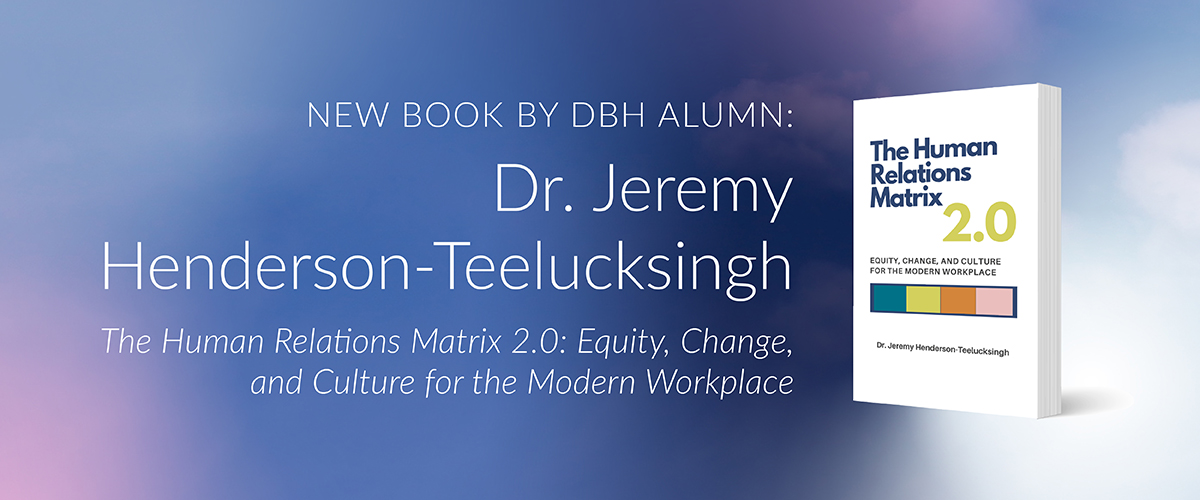
A Practical Roadmap for Equity, Culture, and Human-Centered Leadership in the Modern Workplace
Cummings Graduate Institute for Behavioral Health Studies proudly celebrates DBH alum Dr. Jeremy Henderson-Teelucksingh and the launch of The Human Relations Matrix 2.0: Equity, Change, and Culture for the Modern Workplace, now available in Kindle and paperback editions.
Read more
Explore Dr. Jeremy Henderson-Teelucksingh’s Research: Integrated Behavioral Health Clinical Pathway Proposal: Transgender-affirming Care in the United States
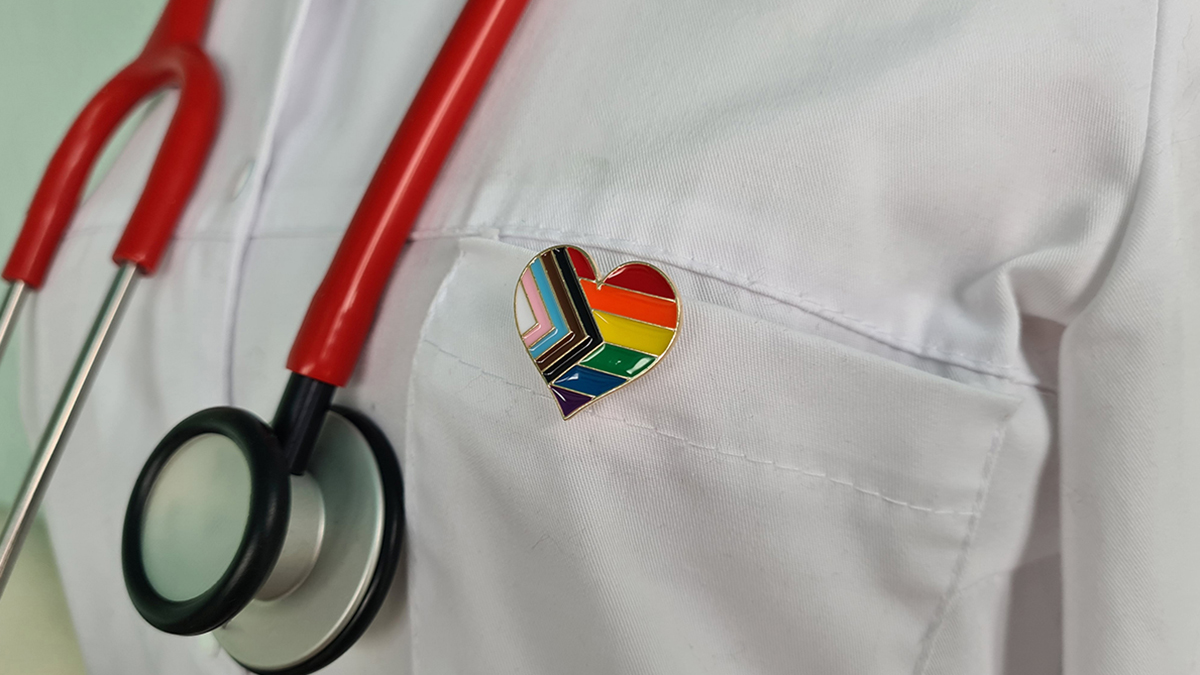
Transgender people experience a gender identity different from their sex assigned at birth (Baker & Restar, 2022; Valente et al., 2022). Transgender is an umbrella term that often includes additional gender identities; however, some gender-nonconforming people prefer to use more precise terminology to identify their gender (Mason et al., 2022). Herein, transgender healthcare refers to the healthcare practice and experiences of transgender people, not those who identify as non-binary, genderqueer, agender, and other gender-nonconforming identities.
Check Out Dr. Jeremy Henderson-Teelucksingh on the Disruptors at Work Podcast
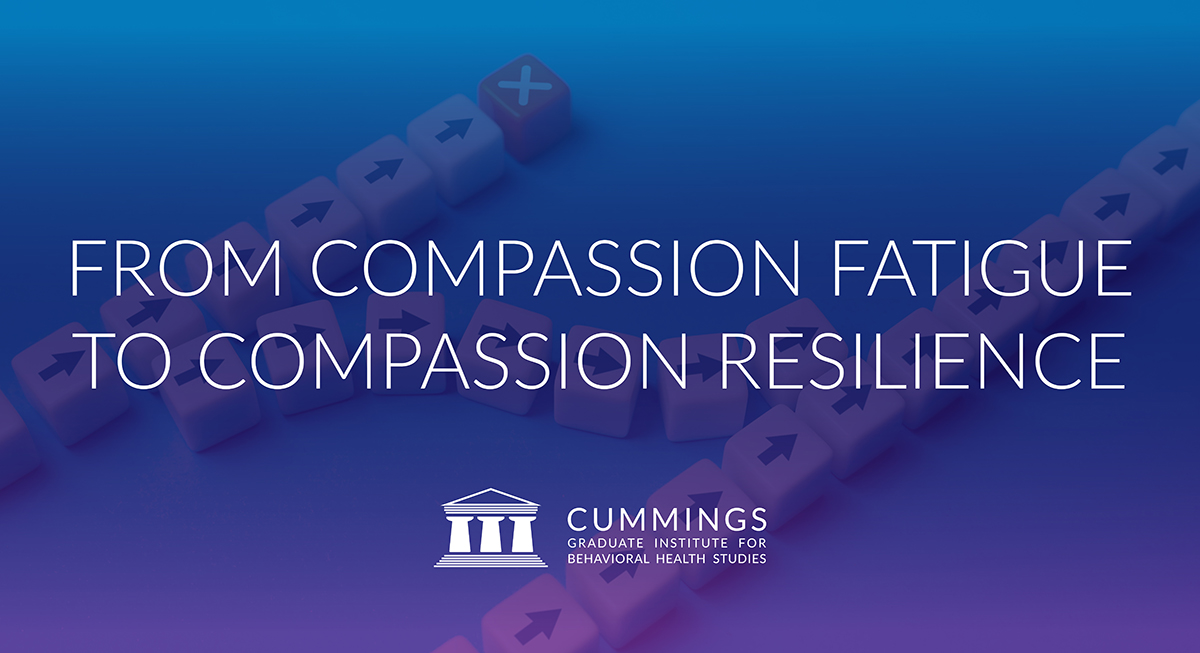
In this episode of Disruptors at Work: An Integrated Care Podcast, guest host Dr. Cory Cannady, Cummings Graduate Institute for Behavioral Health Studies (CGI) Doctor of Behavioral Health (DBH) alumnus, leads an engaging discussion on the importance of self-care for behavioral health professionals. He is joined by fellow DBH program alumni, Dr. Pauline T. Pablo, Co-owner and Executive Clinical Director at Symphony Behavioral Health and Dr. Jeremy Henderson-Teelucksingh, Principal at Indigo Path Collective; and Dr. Gayle Cordes, Faculty Associate at CGI. Drawing from their extensive expertise, the guests share strategies for managing the emotional demands of the profession, setting healthy boundaries while providing compassionate care, and incorporating self-care practices that improve both personal well-being and patient outcomes. The conversation also addresses common challenges in maintaining self-care, methods to combat emotional exhaustion, and practical advice for professionals committed to sustaining their health while making a positive impact in the field.

In this episode of Disruptors at Work: an Integrated Care Podcast, host Dr. U. Grant Baldwin, Jr., DBH, Director of the Doctor of Behavioral Health (DBH) program at Cummings Graduate Institute for Behavioral Health Studies, explores the intersection of artificial intelligence (AI) and integrated healthcare with guests, Jeremy Henderson-Teelucksingh, Dr. Sara A. Schuch, and Dr. Ronke Komolafe. Our panel of experts share the challenges faced in integrating technologies into traditional healthcare settings, provide innovative approaches and best practices, and discuss the future of AI in healthcare.
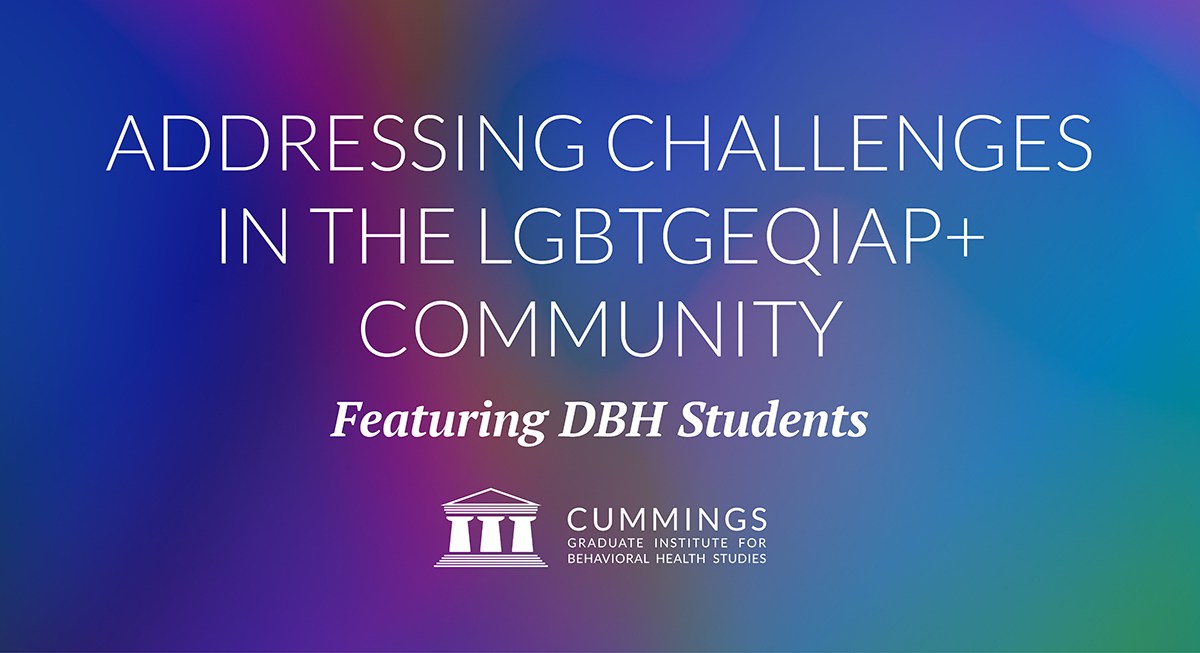
In this episode of Disruptors at Work: and Integrated Care Podcast hosts Dr. U. Grant Baldwin, Jr., DBH, Director of the Doctor of Behavioral Health (DBH) program at Cummings Graduate Institute for Behavioral Health Studies (CGI), and Dr. Larry Ford, DBH, Member of the CGI Board of Directors, discusses the impact that having LGBTQ+ friendly providers can have on the healthcare of members of the LGBTGEQIAP+ community, how listeners can support the healthcare needs of this community, and how to address inequities and discriminatory practices.
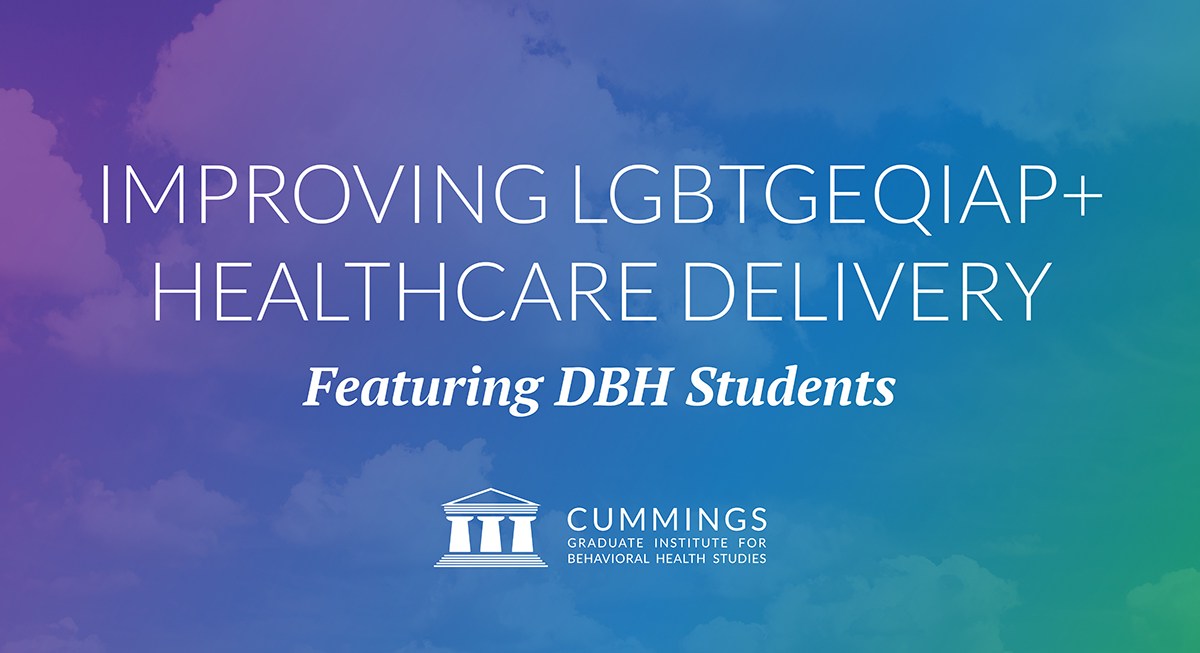
In this latest of Disruptors at Work: and Integrated Care Podcast hosts Dr. U. Grant Baldwin, Jr., DBH, Director of the Doctor of Behavioral Health (DBH) program at Cummings Graduate Institute for Behavioral Health Studies (CGI), and Dr. Larry Ford, DBH, Member of the CGI Board of Directors, are joined by four Doctor of Behavioral Health (DBH) students, all of whom are accomplished healthcare providers. In the third episode of season 2, Dr. Baldwin and Dr. Ford lead an insightful discussion with the panel of experts on improving healthcare delivery to the LGBTGEQIAP+ community. The panelists explore strategies that healthcare providers can implement to ensure that equitable and effective care to this diverse population is provided, how to advocate for the community, and examine some of the most helpful resources. Tune in to learn how healthcare providers can work together to create a more inclusive and equitable healthcare system for all.

In this episode of Disruptors at Work: an Integrated Care Podcast hosts Dr. U. Grant Baldwin, Jr., DBH, Director of the Doctor of Behavioral Health (DBH) program at Cummings Graduate Institute for Behavioral Health Studies (CGI), and Dr. Larry Ford, DBH, Member of the CGI Board of Directors, are joined by three Doctor of Behavioral Health (DBH) students and alumni, all of whom are accomplished healthcare providers. In this episode, Dr. Baldwin and Dr. Ford lead an insightful discussion on the important topic of health information exchanges and digital records. The expert panelists shared their thoughts on the potential benefits and drawbacks of these advances in healthcare technology, including how they might impact the delivery of integrated care.
Dr. Jeremy Henderson-Teelucksingh Contributes to Upcoming Book: Integrated Behavioral Health: Applying the Biodyne Mindset in Healthcare
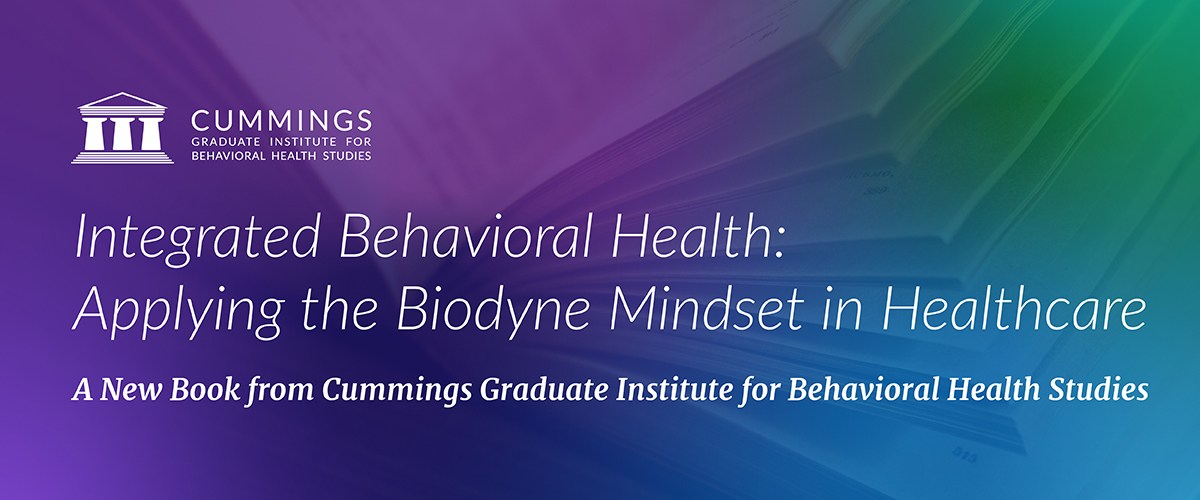
Cummings Graduate Institute for Behavioral Health Studies (CGI) is proud to announce the upcoming release of the groundbreaking new book, Integrated Behavioral Health: Applying the Biodyne Mindset in Healthcare, set for publication in January 2026. This new book builds on the foundation laid by Dr. Nicholas A. Cummings and Dr. Janet Cummings, renowned psychologists and co-founders of both the Doctor of Behavioral Health (DBH) degree program and CGI, who previously introduced the influential Biodyne Model in their seminal work Refocused Psychotherapy as the First Line Intervention in Behavioral Health.






























